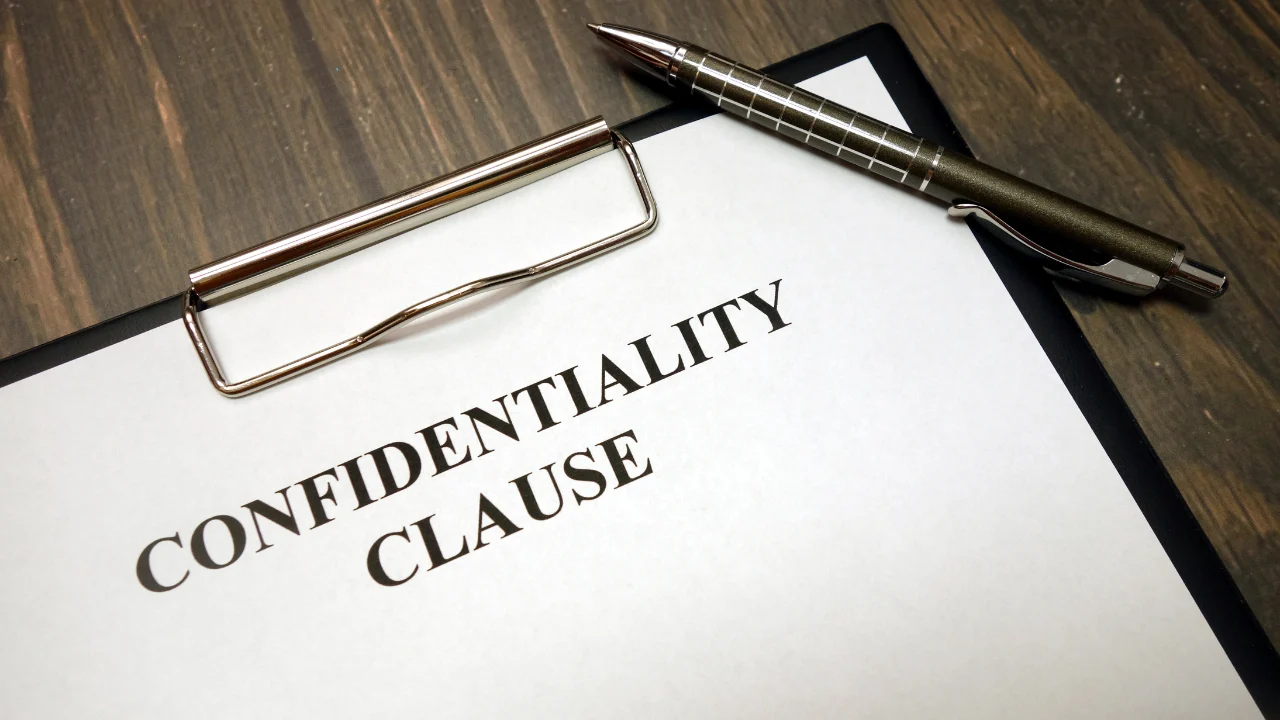
Old Dog, Same Trick: Non-disparagement clauses and former employers
Published on June 25, 2025 by Tim Grellman
It is important that workers seeking new employment are mindful of the principle “don’t bite the [old employer’s] hand that fed you.” Also, it’s important that you don’t ‘burn your bridges’ as the ‘grass isn’t always greener’ on the other side (although let’s hope that it is in your case). How you leave an organisation is important though in a legal sense because (and perhaps this might come as a surprise) many employment contracts contain terms that continue to apply after the employment relationship ends. There’s also the potential crossover into defamation, although that’s a topic for another day.
This is a particularly hot topic in 2025 and there have been some high-profile cases in the news. You may have been reading about how non-disparagement and confidentiality clauses can impede a worker from obtaining new employment. While not the main focus of this article, it’s also important to understand rights that an employer may ask you to ‘give up’ when you leave. I’ll deal with this aspect, and other important issues, later on in this article.
For now though, if you are seeking new employment you might wonder: how does my non disparagement/confidentiality clause affect my future employment? Let me explain.
Non-disparagement
Non-disparagement clauses in employment contracts often oblige the worker to refrain from disparaging the employer. At its simplest, this means not saying negative things about someone or an organisation, especially with the intention of diminishing their value or reputation. These types of clauses are generally expressed to “survive termination of employment”.
Workers should be weary of these clauses. If there is one in your contract, you should ensure that you do not disparage your former employer or bring them into disrepute.
That said, such a clause will generally not stop you from obtaining new employment. You can generally comply with non-disparagement obligations in your new employment, including by refraining from breaching the clause.
We suggest you advise your new employer of the obligation in any previous contract when you are entering into new employment. While it would be unlikely that a new employer would give a direction to engage in conduct that could be in breach of such a clause (such as discussing your departure from your old employer), it’s important to be transparent about these types of issues.
Confidentiality
Under most employment contracts, workers are prohibited from misusing their employer’s confidential information, even after the employment relationship ends.
This can include your former employer’s trade secrets, client lists, payroll information and supplier information.
Importantly though, general “know how” in your chosen industry is unlikely to be considered confidential information.
For example, an accountant will likely be prohibited from telling their new employer of the key assets in their former employer’s balance sheet. However, the accountant is unlikely to be restricted from relying on their general ability to analyse balance sheets in their industry (a skill they may have developed during their former employment).
Often, however, the issue is not as simple as this example. It is wise to advise your employer of your confidentiality obligations and, if necessary, obtain independent legal advice during your new employment to ensure compliance with any post-employment confidentiality obligations.
Legal risks to you and your new employer
If you breach a non-disparagement and/or confidentiality clause, your former employer may have a claim against you for breach of contract. This puts you at risk for having to pay for any damage caused to your former employer for the breach, if it is proven.
Additionally, there may be risk for your new employer. While your new employer will be unlikely to be in breach of contract in relation to the old employer (as the contract is between you and the old employer), the former employer may have a tortious claim (that is, alleging that your new employer enticed a breach of your contractual obligations).
Separation agreements
It is common for an employer to ask a departing worker to sign a separation agreement or settlement deed. Workers might be enticed to do so. For example, an additional separation payment (distinct from statutory entitlements like accrued but untaken annual leave) might be offered on the basis of the worker signing the agreement.
It is important to be mindful that you are generally not obliged to sign any separation agreement or settlement deed. It may be unwise to do so, particularly without legal advice if the separation agreement or deed includes obligations that are onerous (such as broader non-disparagement clauses or clauses that restrict where you can work).
Another risk with signing such a document is that it may mean you forfeit the right to pursue a claim you might have against your former employer. For instance, it may mean you cannot seek an unpaid payment for overtime hours or pursue a claim for a bonus payment that was unreasonably withheld from you.
Such clauses may well impede your ability to partake in future employment. That said, refusing to sign the agreement or deed could mean you miss out on an additional separation payment offered by your former employer (that is conditional on you signing the separation agreement/settlement deed).
Conclusion
Given these complexities, we think it is worth taking the time to obtain legal advice on these important matters. This includes the following issues, as we’ve highlighted in this article:
- How a non-disparagement and/or confidentiality clause could impact your future employment
- How a separation agreement or deed proposed by your former employer could affect your future work
- How best to navigate these obligations as well as your discussions with your new employer
- Whether a direction from a new employer might affect your compliance with your former employment contract.
Carroll & O’Dea Lawyers can advise you on these matters.
Please note that this article does not constitute legal advice. If you are seeking professional advice on any legal matters, you can contact Carroll & O’Dea Lawyers on 1800 059 278 or via our Contact Page and one of our lawyers will be able to assist you.
